How much sugar is too much?
The World Health Organization has recommended a sharp drop in sugar intake. Just five percent of calories should ideally come from added sugars, the WHO advises; down from ten percent. This translates to about six teaspoons of added sugar a day, or about the amount in one eight-ounce bottle of sweetened lemon iced tea. The average American consumes almost quadruple the WHO recommendation—22 teaspoons of added sugar a day. Watch for these signs you might be eating too much sugar, and then figure out tricks to cut back. Slashing sugar can be tricky because sugar is so ubiquitous—you’ll find it even in healthy-sounding foods like cereal and yogurt. Read ingredient lists and reduce your intake of processed, packaged foods in favor of fresh produce and lean protein. Here are some more easy food swaps that can help reduce your sugar intake.
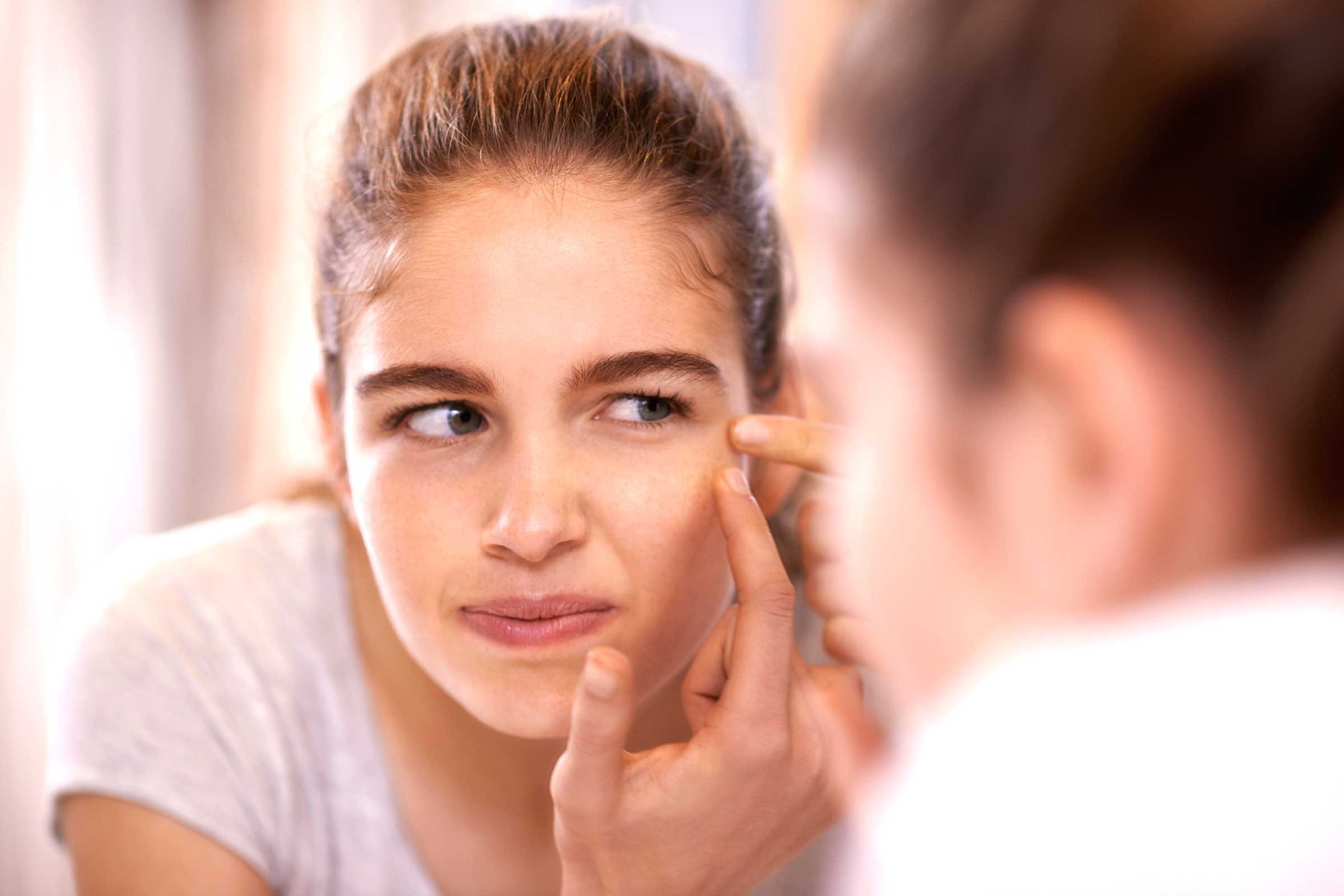
You’re breaking out more than usual
Eating too much sugar can wreak havoc on your skin. A study in the Journal of the Academy of Nutrition and Dietetics suggests a relationship between a high-sugar diet and the severity of acne. Participants with moderate to severe acne reported a higher sugar intake compared with people who had mild or no acne. Learn more about what eating sugar does to your skin.

You feel totally wiped
If you eat breakfast or lunch packed with sneaky sugar and distinctly lacking in satiating protein, fiber, and fat—say, a jumbo bagel with jelly—you could find yourself stuck in a mean afternoon energy slump. You might develop a pounding headache or an urge to cuddle up in bed. A balanced and nutritious diet prevents your blood sugar from going from a sugary high to a lethargic low. Try these tricks to bounce back from a sugar binge.
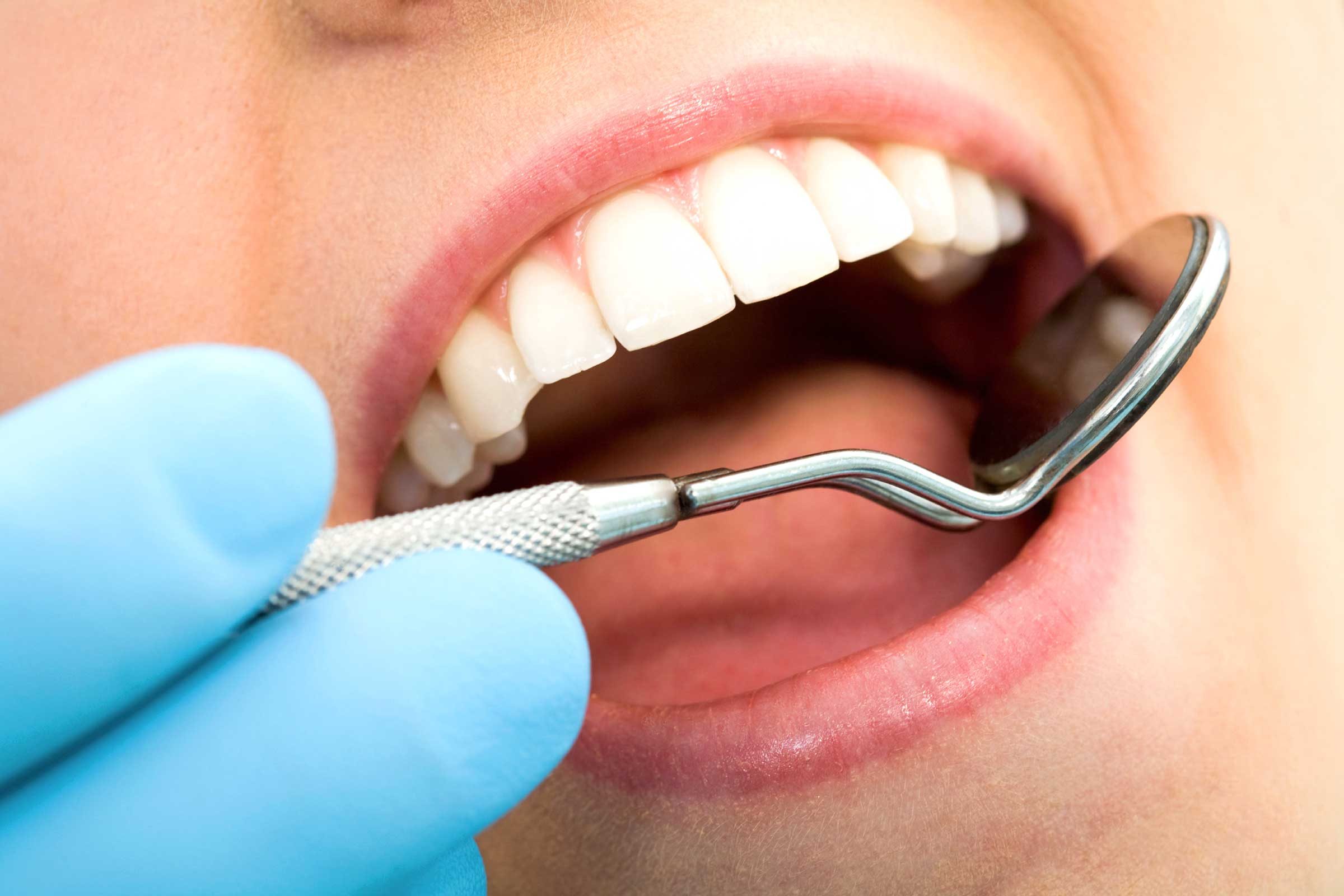
Your dentist has bad news
Cavities have always been a not-so-subtle sign of a sweet tooth: Picture children eating too many lollipops or shoveling in handfuls of jelly beans. When bacteria in your mouth digest any kind of carbohydrate (whether that’s spaghetti, Skittles, or salad), they produce an acid that combines with your saliva to produce plaque, which, if not brushed away, accumulates on teeth and begins to erode teeth enamel—the start of cavities, LiveScience explains. Make sure you’re brushing your teeth at least twice a day to minimize sugar’s effects. Harming your teeth is only scratching the surface of the scary effects of sugar on the body.
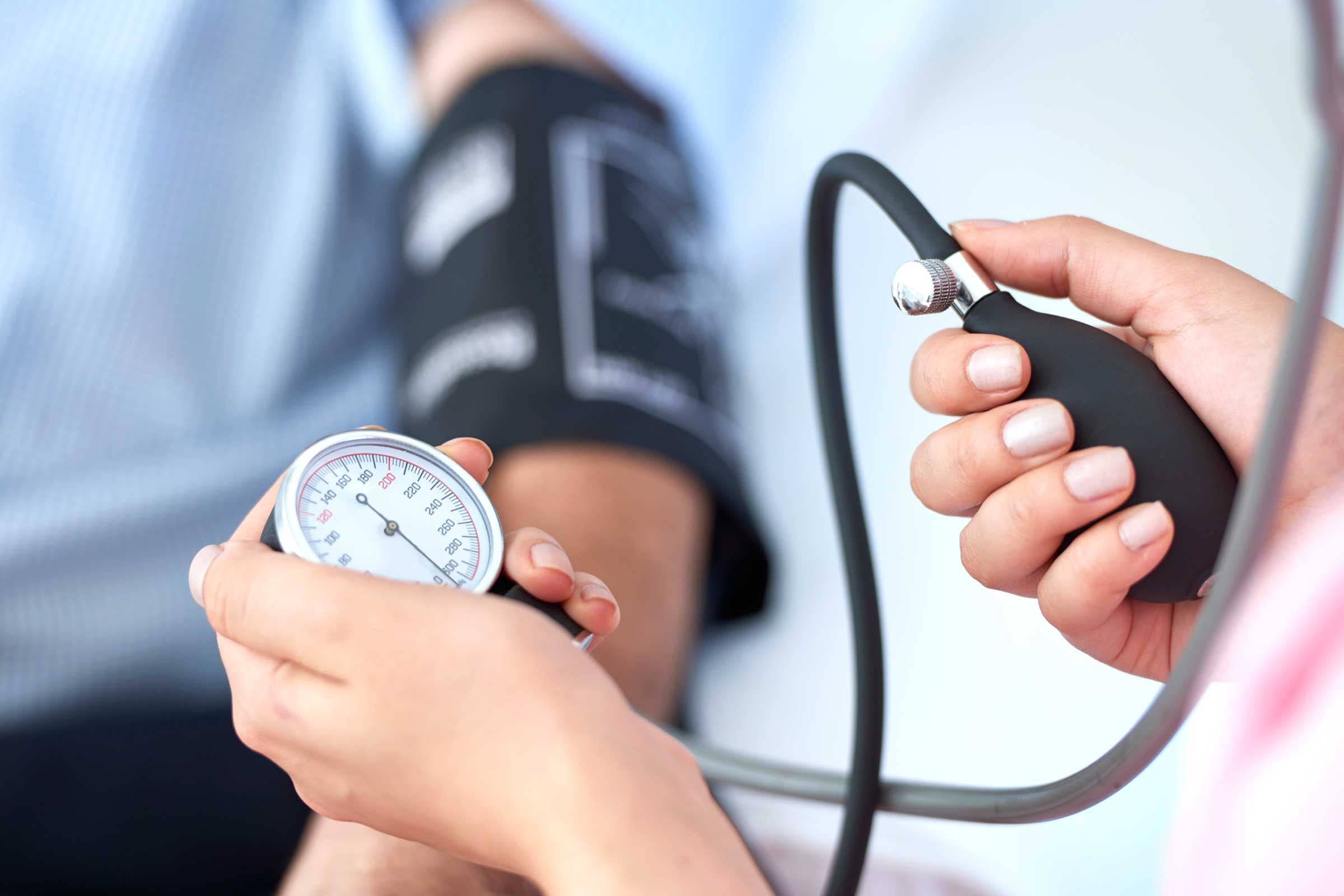
You’ve been diagnosed with high blood pressure
Your blood pressure is considered normal if it is 120/80 or lower. A high-sugar diet can push your blood pressure over this threshold, according to a study in the Journal of the American Society of Nephrology. In a 2014 research review published in the BMJ journal Open Heart, medical experts argued that limiting peoples’ sugar intake is more important than reducing sodium consumption when it comes to healthy blood pressure. “Added sugars probably matter more than dietary sodium for hypertension, and fructose in particular may uniquely increase cardiovascular risk by inciting metabolic dysfunction,” the authors wrote.
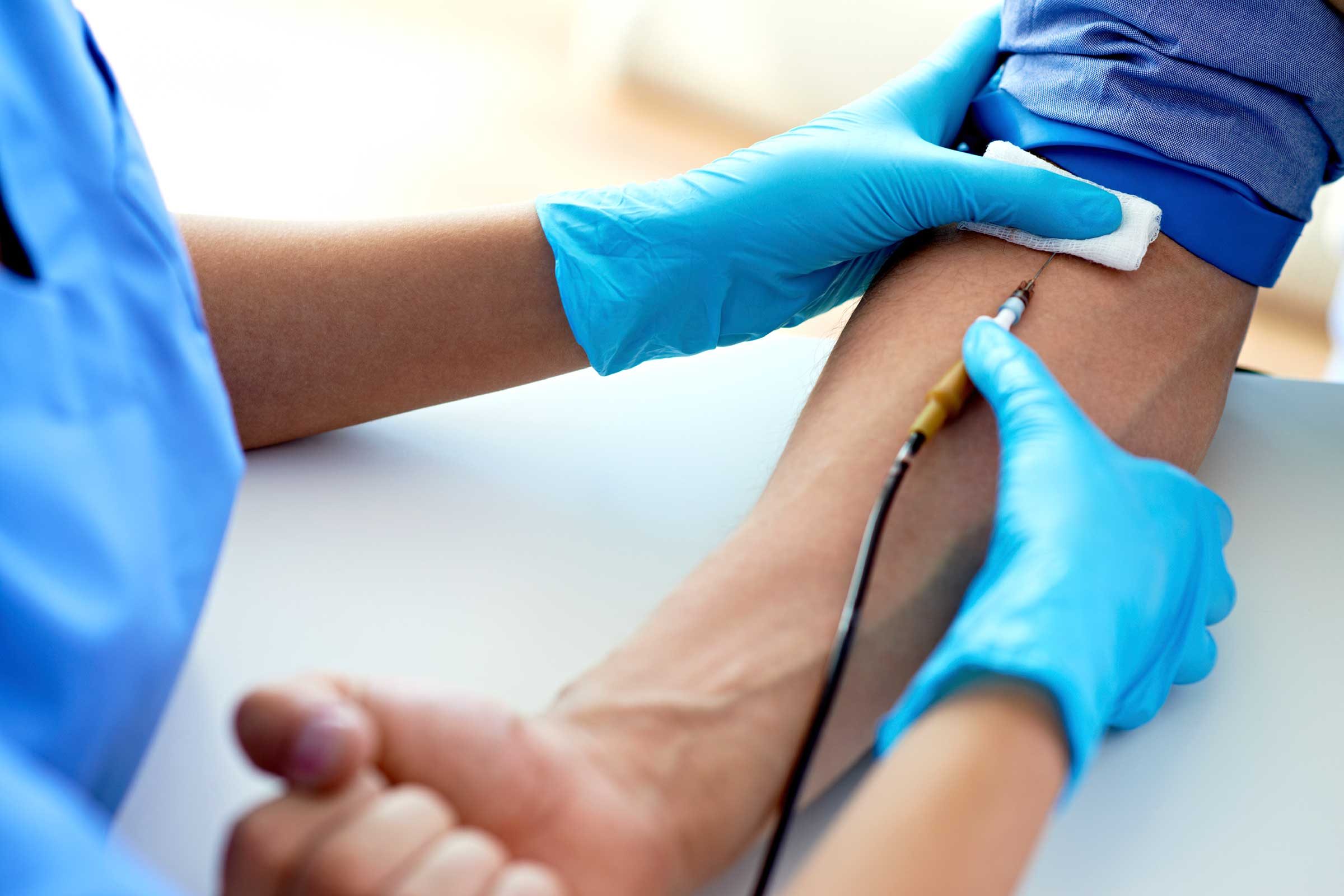
You’ve been diagnosed with high cholesterol
A more hidden sign of too much sugar in your diet: increases in levels of various fats circulating in your blood. A superabundance of sugar can decrease the body’s good cholesterol (HDL) and increase the body’s bad cholesterol (LDL), according to research in the Journal of the American Medical Association. Though the mechanisms by which sugar could affect cholesterol and blood fats isn’t completely understood, study authors suggest that fructose may spur the body to create triglycerides and LDL cholesterol. If your doctor is concerned about your cholesterol levels, discuss the best dietary changes you could make to lower cholesterol. Whether you have high cholesterol or not, you should avoid these foods that have way more sugar than you realize.

You crash after a workout
Properly fueling your body is critical for a good workout. If exercise seems to be getting harder, a high-sugar diet might be to blame. “If you spike your blood sugar with a very sugary item right before an intense effort, you can end up feeling very fatigued and pretty miserable afterward,” says Sara Folta, PhD, an assistant professor at Tufts Friedman School of Nutrition Science and Policy. Fueling yourself with too many simple sugars can cause a quick spike in blood sugar followed by a rapid drop, leaving you feeling exhausted halfway through your run, she notes.

Your jeans are a little snug
If you’ve been relying on soda to push through a tough work deadline, the scale might read a little higher than you’d like. According to a review of studies in The American Journal of Clinical Nutrition, sugar-sweetened beverages seem to uniquely lead to weight gain, thanks to a killer combo of high sugar content, low satiety (they don’t make you feel full), and “incomplete compensation for total energy” (they don’t displace other foods, so they add to your total calorie intake). Try to cut yourself off from sugar-sweetened drinks and stick with water, milk, coffee, and tea. Here are some more surprising ways you can kick a sugar addiction.

You feel blue
Multiple studies suggest a link between sugar intake and risk of depression. A high-sugar diet spikes levels of inflammation throughout the body, which is also linked to higher levels of depression, according to Prevention.com. A diet high in simple sugars from carbs is also associated with depression. “Using data from the Women’s Health Initiative—which is tracking more than 70,000 women—the researchers found that the higher a woman’s blood sugar rose after eating sugar and refined grains, the higher her risk of depression,” the site reported. The reverse was also true: A diet rich in whole grains and produce was associated with a lower risk of depression. Find out the fattest cities in America.
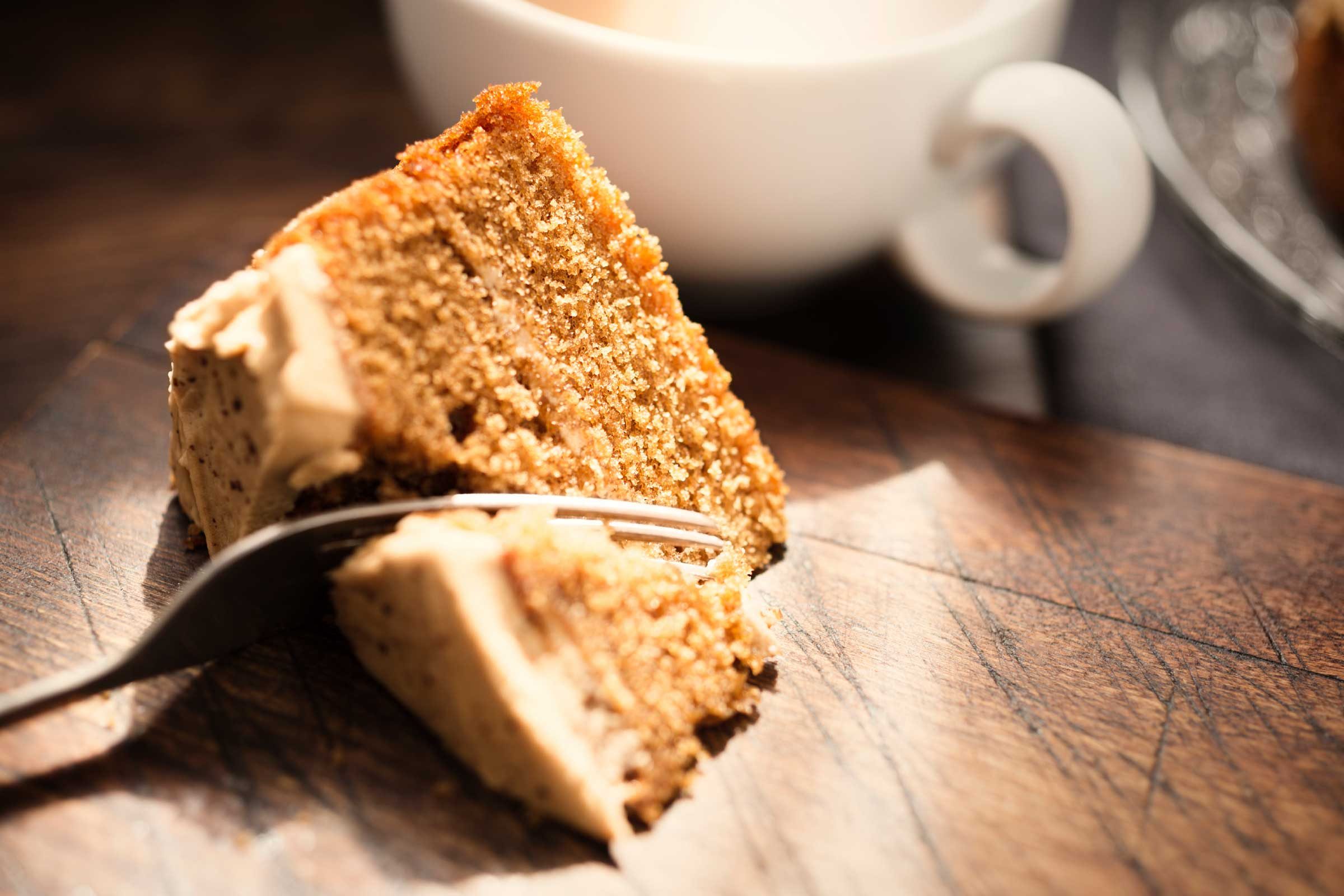
You never feel full
Why is it so easy to reach for another chocolate kiss or sliver of cake? Foods that are high in sugar, but low in protein, fiber, and other nutrients, do not make you feel full, says Folta. “[Sugar] does not trigger the same mechanisms in the body that make your body feel like it just ate,” she says. Next, read up on the scary ways sugar is making you sick.